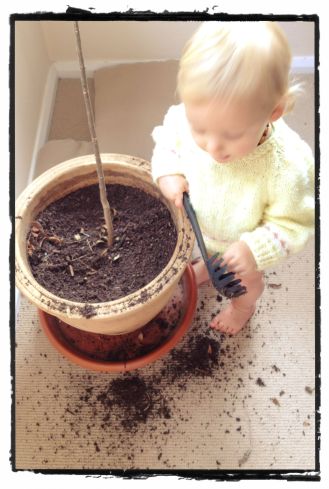You’d think that telling your little boy or girl that they’re ‘good’ is a good thing right? Well, since Joshua was born it’s been something I’ve consciously avoided saying to him. I’ve never quite been able to explain why, I just felt really drawn to not using the expression. I’ve also felt a bit weird whenever people have asked me if he’s a good boy. I mean, what mum’s going to say her kid’s not? I guess people are asking if your kid’s easy to look after, but even if he’s not, does that make him bad? Course not. I digress.
Anyway, so finally, yesterday, I came across a pretty thought-provoking article.
Written by a Sydney-based psychologist, Robin Grille, – “Rewards and Praise: The Poisoned Carrot” gave me a bit of insight into why this whole “good boy” expression has never resonated with me. I think the article’s really worth reading if you’re a parent, or if you’re someone who spends time with a kid, but in case you’re too busy to get round to it …
7 Ideas Of Grille’s Which Really Jumped Out at Me …
- You wouldn’t think that the positive things you say to a child about himself or herself can be as destructive as negative labels, but there are times when this is true.
- Children who have grown up used to expecting praise can feel crushed and inadequate when it doesn’t come. It can dampen their perseverance.
- Rewards and praise condition children to seek approval; they end up doing things to impress others rather than doing things for themselves.
- The more rewards we use, the more we have to use them to keep children motivated. Praise doesn’t create a personal commitment to “good” behaviour or performance, it only creates a commitment to seeking praise.
- Praising a child’s potential, for example, saying something like, “I just know you can do it”, “You’re getting better!”, “I know you’ve got it in you!” or “You’ll get there!” sound supportive on the surface, but don’t help them to like themselves for who they already are or to develop a healthy self-esteem. Why? – Because beneath the praise is the implication that they ‘aren’t good enough yet.’
- Praising a child with words like “good boy” or “good girl” makes a child feel evaluated and judged rather than supported.
- Praise and rewards, like flattery, can stink of our efforts to control, and lead to a loss of our child’s respect and kids, like adults, naturally recoil from being controlled.
Instead Of Praising Our Kids What Can We Do?
Grille isn’t suggesting we don’t express our delight and appreciation for our children, but suggests that appreciation is quite different from praise because it’s not manipulative in any way. Manipulative praise happens when we do it because we want our child to repeat that ”good” behaviour and most kids can sense our deliberate strategy.
Grille also isn’t suggesting that we hold back our love or encouragement, just that we find a way to encourage our kids without using manipulative praise. For example, instead of repetitively and regularly labelling your child as “good” you could express your appreciation of them in terms of your feelings. This is easy to do if you use an “I” statement. For example, if you kids shares their toys with another kid, instead of saying “Good boy for sharing your toys” you could say “Thanks for sharing with your friend, that felt good to him – and to me.”
It’s a bit of a tough one though this isn’t it, because many of us were raised using praise and rewards and often the way we were raised becomes the default position when raising our own kids. Sometimes I find myself using phrases on Joshi which were said to me as a kid, whether I like them or not. However, Grille’s bottom line is that the more we replace praising and rewarding our kids with authentic appreciation and acknowledgment of them, the more likely we are to have a deeper connection with them. The aim I guess, if there is one, is to help nurture children towards becoming adults who are self-motivated and who honour themselves rather than simply becoming reward addicts or crowd-pleasers.
What do you think mums, dads? Have you got anything to say about all this?


Labeling anything good or bad implies judgment. Better to observe and witness without the spoken word. The back and forth, good and bad, approval and disapproval, is a part of everyone’s life. The sooner we’re taught to accept the inevitable dilemma of not being able to win everyone’s approval to illicit a specific response, the easier our lives become. And, the less we depend on others’ approval for our sense of well-being, the more we’re able to define ourselves from within rather than needing validation from external sources. Trust your intuition.